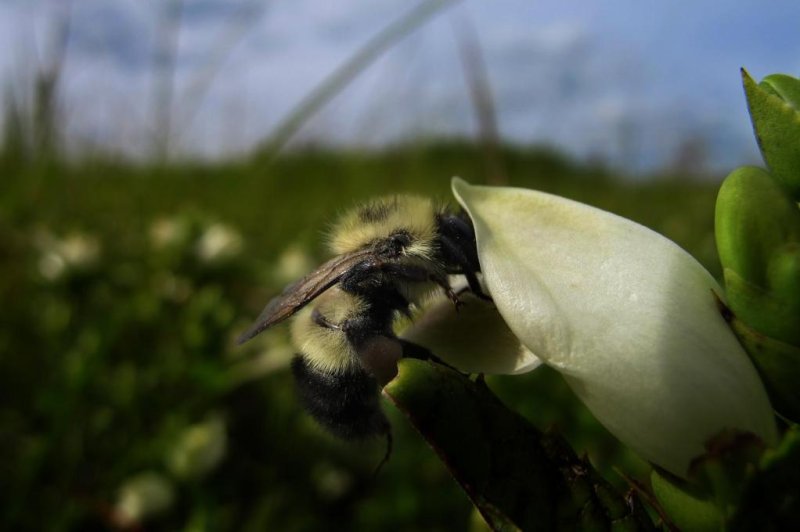A bumblebee forages for pollen in a turtlehead flower. Photo by Leif Richardson/Dartmouth
HANOVER, N.H., Sept. 2 (UPI) -- Homeopathy is catching on in bee communities, too. Parasitized bumblebees self-medicate in the wild.
New research shows infected bees seek out the nectar and pollen of flowers with medicinal qualities. The findings prove wild bees aren't simply bystanders, but are proactive and resourceful.
Scientists at Dartmouth College were able to identify a class of secondary metabolites, called iridoid glycosides, found in floral nectar, which have the effect of reducing parasite loads in infected bees.
Two of the naturally occurring compounds, aucubin and catalpol, are common in a variety of turtlehead, a flower found among East Coast wetlands.
Researchers manipulated concentrations of the medicinal compounds in flowers and studied bee behavior in the lab. As compared to healthy bees, parasitized bee paid more frequent visits to the medicinal flowers.
"Secondary metabolites are commonly present in floral nectar and pollen, yet their functions are not well understood," Leif Richardson, a former Dartmouth grad student now at the University of Vermont, said in a press release. "In this study, we show that these compounds could influence plant reproduction via complex suites of interactions involving not only pollinators but also their natural enemies."
Richardson is the lead author of a new paper on self-medication among bee populations, published this week in the journal Ecology.
Previous research has shown natural chemical compounds found in nectar, like nicotine, can diminish the presence of intestinal parasites in infected bees, but the new findings suggest other parasite-killing chemicals are readily available in the wild.
"We show that bees might be able to self-medicate, altering their foraging behavior when parasitized so as to maximize their consumption of beneficial plant secondary metabolite compounds," said senior study author Rebecca Irwin, a former Dartmouth researcher now at North Carolina State University.















